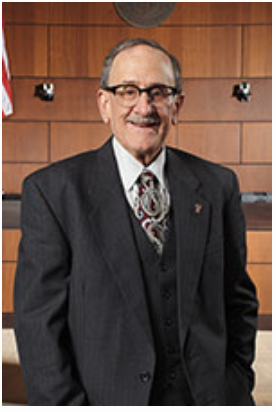In this week’s “It’s Debatable” segment, Rick Rosen and Charles Moster debate whether Elon Musk’s takeover of Twitter has made the platform a less safe environment. Rosen is the Glenn D. West Endowed Research Professor of Law at the Texas Tech University School of Law and a retired U.S. Army colonel. Moster is founder of the Moster Law Firm based in Lubbock with seven offices including Austin, Dallas, and Houston.
Rosen 1 –
Last fall, Elon Musk purchased Twitter, stating that he bought it because “I believe in its potential to be the platform for free speech around the globe, and I believe free speech is a societal imperative for a functioning democracy.” He later said “[b]y ‘free speech,’ I simply mean that which matches the law. I am against censorship that goes far beyond the law.”
The outcry to Musk’s promise to ensure the protection of First Amendment rights on Twitter was swift, particularly from the left, which benefited from Twitter’s silencing of conservative voices and unfavorable information. The release of Twitter files over the last month reveals that government agencies, public officials, and a political campaign attempted to suppress information and de-platform individuals they do not like. In many cases they succeeded.

Some assert that absent censorship Twitter will destroy democracy, and that more content moderation is required, not less. I fail to see how Twitter’s reliance on the First Amendment for content moderation constitutes a threat to democracy. Instead, those defending the suppression of expression are the true dangers to our Republic.
Besides the vote, the principle tool citizens have to participate in democracy is the exercise of their freedom of expression, assembly, and association. By doing so, citizens can influence government policies and the election of government leaders. As Justice Louis Brandeis wrote: “[The founders] believed that freedom to think as you will and to speak as you think are means indispensable to the
discovery and spread of political truth; that without free speech and assembly discussion would be futile; that with them, discussion affords ordinarily adequate protection against the dissemination of noxious doctrine; that the greatest menace to freedom is an inert people; that public discussion is a political duty; and that this should be a fundamental principle of the American government.”
I am especially troubled by the Administration’s stated intention to “keep an eye on Twitter,” and “to monitor its content,” espousing concerns about “misinformation.” It has absolutely no business doing so. It is also hypocritical since the Administration itself has been a leading source of misinformation from its statements about the economy, to the Afghanistan withdrawal debacle, to the causes of gasoline shortages, to the crisis on our southern border. In short, no government official, including the President, has the right to dictate how people think or (except in limited circumstances) what they write or say.
Moster 1 –
Elon Musk’s acquisition of Twitter has created an unsafe environment on the platform in a variety of ways. Although Twitter is privately owned and operated, Musk is open to criticism for his handling of the decimation of his staff which was cruel and disruptive to the platform. On 11.3.22, he cut his 7,500 staff in half instantly and communicated this carnage by a generic message on Twitter. Those employees who remained and criticized the decision were summarily terminated.
As a business owner myself of over 26 years, I am entitled to have my opinion on this issue. Although I am not a perfect specimen by any means, I have always labored hard over any decision to fire an employee given the financial effect on the individual and family. If anything, my delay given introspection has caused financial difficulties which could have been avoided. That said, I cannot fathom the utter cruelty exhibited by Musk in his decimation of Twitter employees. To say it shows a lack of empathy is an understatement.

From a public policy perspective, my criticism is far reaching. Prior to his purchase of the platform, Musk was notorious for his inflammatory and unsubstantiated positions which came close to crossing the line on hate speech. His support of toxic conspiracy theories was incendiary and there is still discussion as to his posts in tandem with the January 6th attack on the Capitol which might have added to the combustion.
For Musk to be in control of Twitter is akin to the happy satiated state of the wolf finally occupying the hen house. His reinstatement of Trump and, in particular, the antisemitic raving lunatic – Kayne West, is emblematic of his active encouragement of hate speech on the platform or (from a more gracious perspective) – total abdication. Kayne West’s open adoration of Adolph Hitler and despicable comments about Jews is an absolute abomination which demonstrates outright hatred combined with incredible ignorance and stupidity. As other African American commentators have stated, Kayne would have lasted about two minutes in Nazi Germany. Oh, he forgot that Jews died in the late 60’s fight for civil rights. Yes – Kayne is an (fill in the blanks) – but for Musk to give him access again?
Independent market research has documented a statistical increase in hate speech since Musk took over Twitter. Given the above, this is not a surprise. Moreover, unlike Facebook, which is certainly not perfect, they at least have an enforceable policy which bans hate speech.
Musk has many admirable qualities. I am a huge fan of SpaceX and his pursuit of new technology. That said, his motives with Twitter are questionable and potentially dangerous.
The environment on the platform has certainly become more unsafe since Musk took over.
Rosen 2 –
That Elon Musk discharged thousands of employees is certainly unfortunate for the affected individuals, but it does not, by itself, make Twitter an unsafe environment. It is an economic decision. Charles’ focus on hate speech, however, has merit.
Tweets that directly attack people based upon characteristics such as race, religion, sex and sexual orientation, gender and gender identity can certainly result in fear of violence. But the solution is not so clear. First, except in very limited circumstances (e.g., incitement of imminent violence), hate speech is protected by the First Amendment. This doesn’t mean Twitter—a private entity—cannot block such speech (as it did with Kanye West’s account), but such action does not eliminate the deplorable bigotry. Perhaps it’s better to allow such speech in the daylight rather than drive it underground. As Justice Brandeis noted, “discussion affords ordinarily adequate protection against the dissemination of noxious doctrine.”
Second, legitimate opinions are often swept under the rubric of “hate speech.” For example, Harry Potter author, J.K. Rawlings, has been deemed hateful for stating “[i]f sex isn’t real, there’s no same-sex attraction. If sex isn’t real, the lived reality of women globally is erased…. It isn’t hate to speak the truth.” Ad hominem attacks on Rawlings for her statements are flatly unwarranted. Vitally important issues such trans-affirming surgery for minors, the participation of transwomen in women’s sports, and critical-race theory in schools should be subjects of dispassionate and civil debate. Too often, opposition to a particular orthodoxy is deemed “hate”; it is not—opposing viewpoints should be tested in the “marketplace of ideas.”
Most importantly, Musk exposed and ended the symbiotic relationship existing between the government and Twitter. Any government attempt to censor
constitutionally protected speech is a genuine threat to democracy and the foundation for tyranny. For instance, we now know that the FBI took sides in the 2020 election, notably by suppressing the Hunter Biden laptop story on wholly fabricated grounds that it was Russian disinformation. The FBI’s involvement in politics is frightening. The Twitter files released by Elon Musk reveal additional government efforts to subvert free speech.
Finally, the fact the government did not order as opposed to persuade and pay Twitter to comply with its censorship requests is irrelevant. As the Supreme Court stated in Norwood v. Harrison: Government “may not induce, encourage or promote private persons to accomplish what it is constitutionally forbidden to accomplish.”
Moster 2 –
I agree with Rick that hate speech is a major concern with regard to any public forum such as Twitter and that government regulation is certainly not the answer in a democratic society. However, Rick fails to address the toxic effects of platforms such as Twitter which allow for a malignant post to reach hundreds of millions of subscribers in a single tweet. The technological ability to instantaneously influence and galvanize public attention for malicious ends is the “present danger” of Twitter, particularly during the reign of Elon Musk.
Rick dusts off a tried and seemingly true quotation from Justice Brandeis oft cited in these debates – “discussion affords ordinary adequate protection against the dissemination of noxious doctrine.” Admittedly, I am not a big fan of Brandeis which may constitute “law school heresy” as he also steadfastly enforced the Supreme Court decision in Buck v. Bell which affirmed the forced sterilization of so-called “feeble-minded people” (“Three generations of imbeciles is enough”) and a case he brought before the High Court in 1908 where he argued that women’s work hours should be regulated because as providers of the next generation they amounted to collective property which the state had to protect (Muller v. Oregon).
That said, Brandeis may have made a valid point more than a century ago when the geographical scope of “discussion” was limited by the archaic technology of the day. In this era prior to the advent of television and, of course, the computer technology which makes possible the very existence of platforms like twitter, a malignant communication could not circle the globe at the speed of light and reach as many people (times 10,000).
Case in point would be the incendiary tweets of Donald Trump which falsely asserted that Biden’s election was stolen and incited the violence which led to the Jan. 6 Insurrection – an event which had never transpired in American History. Twitter rightly banned Trump from the platform which was notoriously reversed by Musk. Although Twitter was certainly not the cause, it created the technology which made this attempted coup possible. I say this as a critic of Joe Biden who displays many of the dictatorial tendencies of his predecessor which are under reported by the liberal media.
The answer is not to allow for government regulation of the media or to criminalize political speech however noxious it may be. John Adams, a champion of the First Amendment and second President of the United States, abandoned his freedom of speech ideals and passed the Sedition Act of 1798 which made it a crime to “print, utter, or publish… any false, scandalous, and malicious writing” about the government. He had no qualms using the statute as a sword against his political enemies including the grandson of Benjamin Franklin who was arrested for publishing critical articles in his newspaper.
The solution is for platforms such as Twitter to regulate themselves through proper guidelines to remove hate speech from any forum. Facebook has implemented these responsible policies although it is not a perfect specimen.
The reason why Twitter has become a dangerous platform since the acquisition by Musk is that all controls have been seemingly removed. The Center for Countering Digital Hate released a recent report which documents the exponential increase in “hate speech” since Musk took over Twitter, to wit, 3900 posts per day which include slurs against African Americans – more than triple the 2022 average. Tweets using a slur against gay people rose 58% along with transgender slurs increasing by 62%.
Finally, the brutal decimation of Twitter’s staff by Musk is a legitimate criticism as it targeted his critics and dismembered the mechanisms which monitored abusive content. His actions as a business owner although certainly within his province, have made Twitter a more dangerous platform not just for his employees but all of us.








